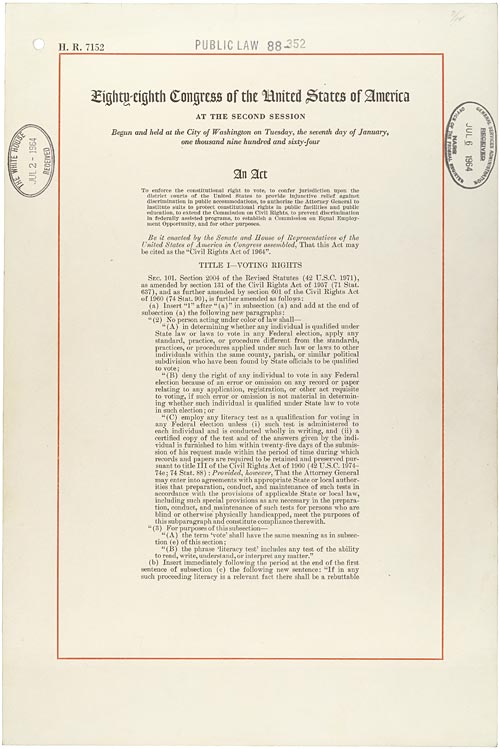
The Civil Rights Act of 1964, a landmark legislation in the fight for equality, prohibits discrimination based on race, color, religion, sex, national origin, and disability. Two of its most prominent provisions, Title VII and Title VIII, address employment and housing discrimination, respectively. Understanding the distinctions between these two titles is crucial for individuals and organizations seeking to comply with the law and promote a just and equitable society.
Title VII: Employment Discrimination
Title VII aims to eliminate employment discrimination by prohibiting employers, labor unions, and employment agencies from discriminating against individuals based on their protected characteristics. This means that employers cannot make decisions about hiring, firing, promotion, compensation, or other terms and conditions of employment based on race, color, religion, sex, or national origin.
Key Provisions of Title VII:
Equal Employment Opportunity: Employers must provide equal employment opportunities to all qualified applicants and employees, regardless of their protected characteristics.
Disparate Treatment: Employers are prohibited from intentionally discriminating against individuals based on their protected characteristics.
Disparate Impact: Even if not intentional, employment practices that disproportionately disadvantage individuals of a particular protected group are considered discriminatory.
Sexual Harassment: Title VII prohibits both quid pro quo sexual harassment, where sexual advances are exchanged for employment benefits, and hostile work environment harassment, where an individual is subjected to unwelcome sexual conduct that creates a hostile or offensive work environment.
Title VIII: Fair Housing
Title VIII, also known as the Fair Housing Act, prohibits discrimination in the sale, rental, and financing of housing based on race, color, religion, sex, national origin, and disability. This means that landlords, real estate agents, and lenders cannot deny housing opportunities, establish discriminatory rental terms, or set unfair mortgage conditions based on an individual’s protected characteristics.
Key Provisions of Title VIII:
Equal Access to Housing: All individuals have the right to equal access to housing opportunities, regardless of their protected characteristics.
Disparate Treatment: Housing providers are prohibited from intentionally discriminating against individuals based on their protected characteristics.
Disparate Impact: Housing practices that disproportionately disadvantage individuals of a particular protected group are considered discriminatory, even if not intentional.
Reasonable Accommodations: For individuals with disabilities, housing providers are obligated to make reasonable accommodations to allow them to fully enjoy their housing rights.
Enforcing Title VII and Title VIII
The Equal Employment Opportunity Commission (EEOC) is responsible for enforcing Title VII, while the Department of Housing and Urban Development (HUD) enforces Title VIII. Individuals who believe they have been discriminated against can file complaints with the respective agency. If the agency finds evidence of discrimination, it can take steps to remedy the situation, including ordering employers or housing providers to change their practices and providing compensation to the victims.
Conclusion
Title VII and Title VIII, fundamental pillars of the Civil Rights Act, play a crucial role in protecting individuals from employment and housing discrimination. By understanding the distinct provisions and protections of these two titles, individuals and organizations can foster inclusive workplaces and communities that uphold the principles of equality and fairness.